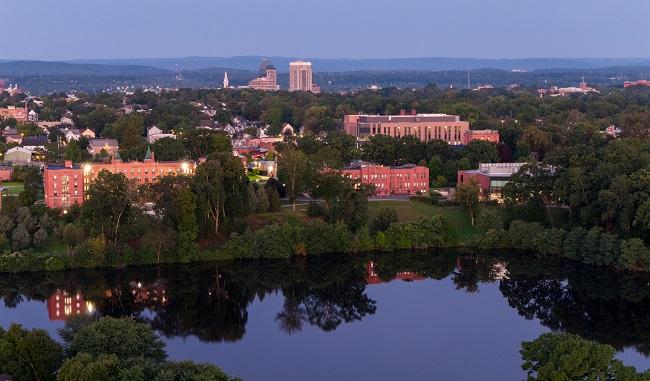Health Promoting Campus
We are a health promoting campus.
Our Commitment
The Humanics mission of Springfield College is to educate all students in spirit, mind, and body for leadership in service to others. Directly aligned with this mission is to prioritize the College’s commitment to health and well-being. This commitment extends beyond the programs and services provided to students, faculty, and staff, and intentionally addresses the entire campus community through addressing the systems and settings that can make Springfield College a healthier place for all. In adopting the Okanagan Charter, and continually working towards a healthier campus community in people, place, and planet, Springfield College maintains its position of leadership by reinforcing our commitment to health and well-being, strengthens alignment with the College’s mission, and enhances our distinctiveness. A healthy campus for all will improve the lives of those who live, study, and work here.
In becoming a health promoting college, Springfield College acknowledges these aspirations and calls to action, and commits to creating a healthier community for all.
What is Health Promotion?
According to the World Health Organization, health promotion is the process of enabling people to increase control over and improve their health. It moves beyond a focus on individual behavior toward a wide range of social and environmental interventions.
As a core function of public health, health promotion supports institutions, communities, and individuals in coping with and addressing health challenges. This is accomplished by building healthy policies, creating supportive environments, and strengthening community action and personal skills. The goals and principles of health promotion were solidified at the WHO’s first international conference on health promotion and are documented in the Ottawa Charter (1986).


